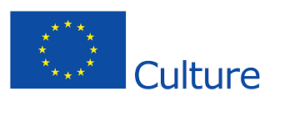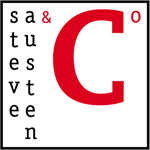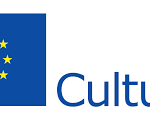
After having succeeded in receiving the fully recognition as a Master course for professionals from the Netherlands and Flanders , our brand new MBA Culture, Heritage & Citizenship, we now want to include various initiatives elsewhere in Europe .
This is the plan
This should lead to a joint MBA European Culture, Heritage & Citizenship (MBA ECHC) program. For this purpose leading European knowledge partners in the field of Education and Culture will cooperate to take part in a process that will interlink their existing practices and networks, to add specific knowledge, to exchange tutors, scholars and trainers to realise an educational program that does give students and professionals in the wider culture and heritage field, more opportunities to enlarge their learning practise by including cases from the respective countries involved. The set-up consists of online studies via a platform, classroom lessons, workshops, seminars, conferences and international practical cases and site visits. MBA ECHC is based on a concept for an international study comprising of 6 modules in a period of 24 months to be concluded with a thesis.
The objective is to contribute to the trend towards contextualisation in making tangible and intangible cultural heritage accessible. This new trend in providing access to European heritage offers an opening to provide a new input for the concept of European Citizenship.
CULTURAL Action and the Concept of European Citizenship.
The idea of culture playing a more prominent role in local, regional, national and European processes than before, does find more and more acceptance.
By implementing the ambitions of the Treaty of Lisbon, the EU can no longer be seen as primarily an economic project. Inclusion of citizens’ aspirations in ALL fields of policy changes the paradigm from economic to cultural notions.
When citizens have common cultural aims, even if the cultures themselves are different, the decentralised cross-fertilising of ideas becomes a way for active citizens to develop a common Europe while keeping their own sense of who they are intact. By removing labels, except those individuals choose to express themselves, we remove the need for protection against outsiders who mean us no harm.
From AUDIENCE PARTCIPATION to CITIZENSHIP EDUCATION.
The arts as intermediary
Arts institutions throughout Europe are confronted with a process in which the classical role that was a shared assumption in Europe from the Restoration on, namely to be connected in one way or another with the nation state’s need for representation, is rapidly declining in significance. As providers of meanings, value orientations, and historical and social contexts, their role lies precisely in the performing of an intermediary role between different citizens and between civil society and the political class. Festivals and venues, including museums, are by their very nature natural meeting places for gaining depth and orientation with respect to the principles of the ‘value community’[1] that forms the basis of a democratic Europe. Having said that new alliances are necessary if that potential is to be exploited to the full in the 21st Century.
It seems to me that introducing special cases of the notion of citizenship such as ‘cultural citizenship’ does not further the debate on citizenship or that of the role of cultural institutions. After all, we cannot rule out the possibility that those who devise these terms are arguing for special rights for certain groups of citizens, rights that ‘normal’ citizens will be denied.
Moreover, it might mean that groups that fall under such definitions ought to accept different responsibilities for the public space, the general interest, the functioning of civil society and the democratic constitutional state. This is separate from the implicit suggestion that group identities, in so far as they exist, must lead to legislation by category, which erodes the principle that all citizens are equal before the law.
A notion that implicitly is included in most cultural programmes and the role of performing arts, the heritage sector and festivals.
Towards new relations
By now the question is no longer whether citizens are prepared to assume a share of the responsibility for how the public domain is organized, but rather: how can it be organized in such a way that political decision-making processes can be stimulated by it? Is there still a role for cultural organizations such as museums, theater groups, galleries, festivals and artists here, and if so, how is it to be understood?
The link with the arts
Arts institutions can play an important role in this. The arts ask something of us that is not common in everyday life, they urge us to abandon familiar and well-trodden paths, to make ourselves receptive to unconventional panoramas and to accept complexity and ambiguity as a condition of progress.
Not so long ago, from the 1970s to the aftermath of the Cold War, art and artists were important catalysts of social progress. The ‘decalogue’ of the Helsinki Accords from 1975, which with hindsight can be seen to have heralded the beginning of the end of the Cold War, encouraged artists and intellectuals to take initiatives that would bridge the political boundaries that existed at the time between Eastern and Western Europe.
Nowadays it is young intellectuals and highly-trained professionals who not only analyze the present impasse, but who also provide the necessary depth that enables active citizens to arrive at important insights regarding the role of the citizen, the position of the state, and the place of religion in a mature democracy that recognizes civil rights and provides active protection.
What they have in common is that they transcend the formation of networks as we have known them so far because they are not primarily aimed at exclusively defending the interests of a group, but are orientated towards the general interest, which for that and other reasons is ripe for a thorough redefinition.
It is thus logical for the public space in Europe to be increasingly full of initiatives from young European citizens who point to the ‘value community’ that must form the core of every society at local, regional, national or international level
Conclusion: A new toolkit
The fact that cultural organizations are organic meeting places of interested and motivated citizens offers great opportunities for a more intensive interaction between them as consumers of art and culture and as voters, citizens and taxpayers. If festival managers are tuned in to, and therefore derive some of their artistic focus and direction from, these changes in the global, political context then they can contribute to citizens achieving a deeper understanding of the principles of the ‘value community’ that now form the foundation of a democratic Europe. But achieving this is not a function of cultural and heritage organizations alone but will require new alliances and instruments if we are to exploit this potential to the full.
In terms of cultural management this will require more attention to be given to the relationship of the cultural sector at large, to citizenship and civil society; their relationship with stakeholders; the consequences of the family life cycle; the interactive models for communication and program development and in particular the role of the cultural organization itself as a citizenship educator: by which is meant that a cultural organization should include space in its program where audiences can learn and engage with the basic notions of what it means to be a citizen and the rights and responsibilities that this carries in terms of being able to vote, carry a passport and enjoy the benefits of citizenship.
European Citizenship is a concept that is still under development and for which new points of entry are constantly being sought to give it an extra dimension. The partners believe that the initiatives that they have taken with one another in the past will be more fruitful and lead to a more in-depth understanding of the theme in a joint project within the context of an MBA.
There is as yet no MBA program in which the knowledge and skills of business administration are integrated within the domains of Culture and Heritage to give the concept of European Citizenship extra content or a new dimension. The intended outcome of the project will be a course program that trains the opinion leaders of the future to develop and apply in practice an integrated set of ideas involving business processes and the new form of contextualisation within the culture and heritage sector in order to further explore the concept of European Citizenship.
The profile of the students consists of tutors, opinion shapers, students, urban planners, (art) historians, policymakers, consultants, fundraisers and administrators of donating entities, museum and theatre directors, curators, journalists, researchers and everyone between the ages of 20 and 50 years in a (future) leading position who is capable of providing new input to the debate on European Citizenship by establishing new connections with the past and the present from the perspective of the art and heritage sector.
The partners in this endeavour are European knowledge partners:
- University of Amsterdam, cultural studies, Dr Dos Elshout
- Institute of Advanced Studies Köszeg, Prof. Dr.Ferenc Miszlivetz
- Arts Research Institute of Georgia, Dr Iuri Mgebrishvili
- Fundacion Academia Europea de Yuste, Mr Miguel Angel Martin Ramos
- University of Bologna, Department of Cultural Heritage, Ravenna, Prof. Mario Neve
- Fondazione Flaminia, Ravenna, Mr. Antonio Penso
- Central European University, Nationalism Studies Program, Prof.András László Pap
- Netherlands Business Academy, prof. Jan van Zwieten
- The Amsterdam-Maastricht Summer University, Dr Steve Austen
Suggestions for further reading
Dahrendorf, R., 1988, Citizenship. The New Problem. 6th Van der Leeuw lecture, Groningen, the Netherlands
Access to Culture, 2012, The Cultural Component of Citizenship: an Inventory of Challenges, Brussels: European House for Culture
Duncan, C.,1991, Art Museums and the Ritual of Citizenship, Exhibiting Culture, Washington: Smithsonian Institution Press
Hoeksma,J., 2011,The EU as a democratic polity in international law. The Hague: T.M.C. Asser Institute
Raad voor Cultuur, 2007, Advies Agenda Cultuurbeleid and Culturele basisinfrastructuur, available from: http://www.cultuur.nl/
MORE INFORMATION can be obtained at office@amsu.edu
We are looking for donors, partners, co-producers and presenters, and please join our Mailinglist, if you want to be involved in this endeavour.
[1] Here the concept of ‘value community’ is a metonym for the shared values/principles that now reflect discussion about European citizenship since the Treaty of Lisbon was signed by member states in December 2007 and came into power in December 2009.

